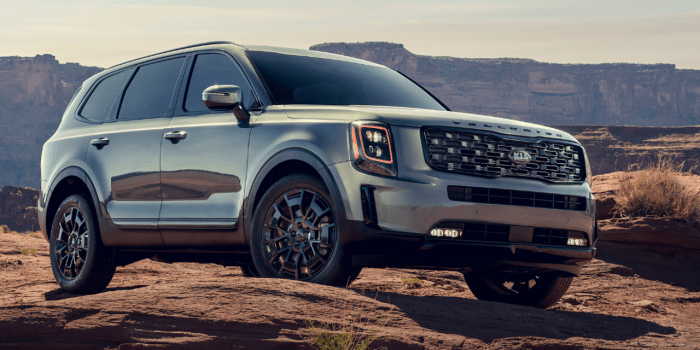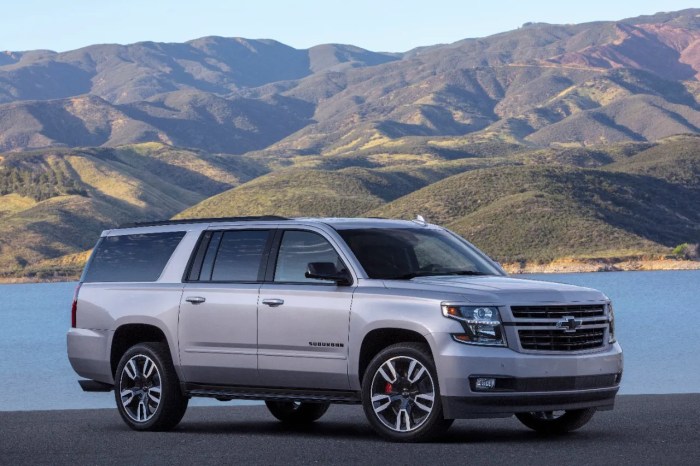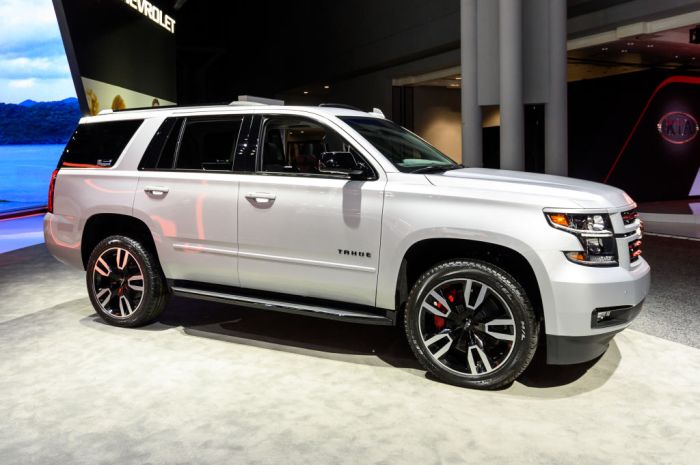Most reliable SUVs for families are essential for safe and comfortable travels. Let’s explore the top picks and key considerations for choosing the perfect family vehicle.
When it comes to selecting an SUV for your family, there are various factors to keep in mind, from safety features to interior space and maintenance costs.
Factors to Consider When Choosing a Reliable SUV for Families

When selecting a reliable SUV for your family, there are several crucial factors to keep in mind to ensure the safety, durability, and efficiency of the vehicle.
For those who enjoy adrenaline-pumping activities, having travel insurance for adventure sports coverage is essential. This type of insurance provides protection and peace of mind for thrill-seekers engaging in risky outdoor pursuits.
Important Safety Features to Look for in an SUV
Ensuring the safety of your family should be a top priority when choosing an SUV. Here are some essential safety features to look for:
- Advanced airbag systems to protect passengers in case of a collision.
- Electronic stability control to help maintain control of the vehicle in challenging driving conditions.
- Anti-lock braking system (ABS) to prevent the wheels from locking up during sudden braking.
- Blind-spot monitoring to alert the driver of vehicles in their blind spots.
The Importance of Reliability and Durability in Family Vehicles
Reliability and durability are key factors in ensuring that your family SUV can withstand the demands of daily use. Look for models with a strong reputation for longevity and minimal maintenance issues to provide peace of mind for you and your loved ones.
The Significance of Fuel Efficiency for Family SUVs
Choosing a fuel-efficient SUV can help save money on gas expenses and reduce your environmental impact. Look for models with hybrid or electric options, as well as features like automatic start-stop technology to improve fuel efficiency during city driving.
Top SUV Models Known for Reliability

When it comes to choosing a reliable SUV for families, there are several brands and models that stand out for their dependability and performance. Let’s take a look at some of the top SUV models known for their reliability.
Most Reliable SUV Brands for Families
- Toyota: Toyota SUVs like the RAV4 and Highlander are known for their reliability and long-term durability.
- Honda: Honda SUVs such as the CR-V and Pilot have a reputation for being dependable and well-built.
- Subaru: Subaru SUVs like the Forester and Outback are popular choices for families due to their reliability and safety features.
Comparison of Reliability Ratings
- Toyota RAV4: The Toyota RAV4 consistently receives high reliability ratings from various sources, making it a top choice for families.
- Honda CR-V: The Honda CR-V is another SUV with excellent reliability ratings, providing peace of mind for families on the road.
- Subaru Outback: The Subaru Outback is praised for its long-term reliability and rugged performance, ideal for adventurous families.
Performance and Long-Term Reliability of Hybrid or Electric SUVs, Most reliable SUVs for families
- Toyota Highlander Hybrid: The Toyota Highlander Hybrid offers a combination of reliability and fuel efficiency, making it a great choice for eco-conscious families.
- Ford Escape Plug-In Hybrid: The Ford Escape Plug-In Hybrid provides reliable performance and the option for electric-only driving, catering to families looking for versatility.
- Tesla Model Y: The Tesla Model Y, an all-electric SUV, offers cutting-edge technology and impressive performance, with the added benefit of long-term reliability.
Interior Features and Space Considerations for Family SUVs: Most Reliable SUVs For Families
When it comes to choosing a family SUV, interior features and space considerations play a crucial role in ensuring comfort and convenience for all passengers. From seating capacity to entertainment options, these factors can greatly impact the overall driving experience for families.
Ideal Seating Capacity and Cargo Space
Family SUVs are typically designed to accommodate larger groups, so the ideal seating capacity should be at least seven passengers. This allows for enough room for kids, pets, and all the gear that comes with family outings. In addition to seating capacity, cargo space is equally important. A spacious cargo area ensures that you have enough room to store strollers, sports equipment, groceries, and luggage without compromising passenger comfort.
When it comes to choosing a car, many people look for compact cars with spacious interiors to ensure a comfortable ride. These vehicles may be small in size, but they offer ample legroom and storage space for a stress-free journey.
Importance of Entertainment and Connectivity Features
Entertainment features such as rear-seat entertainment systems, USB ports, and Bluetooth connectivity are essential for keeping passengers entertained during long drives. These features can help distract children, provide entertainment options for all passengers, and keep everyone connected to their devices. Connectivity features also allow for seamless integration of smartphones and other devices, making it easy to access music, navigation, and other apps on the go.
Versatility of Seating Configurations
Family-friendly SUVs often come with versatile seating configurations that allow you to easily adjust the layout to accommodate passengers and cargo as needed. Features like fold-flat seats, sliding second-row seats, and removable third-row seats provide flexibility for different seating arrangements and cargo needs. This versatility ensures that you can make the most of the interior space in your SUV, whether you’re carpooling with friends or loading up for a family road trip.
Maintenance and Ownership Costs of Reliable SUVs
When considering a reliable SUV for your family, it is important to factor in the maintenance and ownership costs. These expenses can vary significantly depending on the brand and model of the SUV you choose. Understanding these costs upfront can help you make a more informed decision and avoid any financial surprises down the road.
Maintenance Costs Comparison
- Each SUV brand and model will have its own maintenance costs associated with routine services such as oil changes, tire rotations, and brake inspections. It is advisable to research and compare these costs before making a purchase.
- Some brands may offer lower maintenance costs due to more affordable parts or longer service intervals, while others may be more expensive to maintain.
- Consider factors such as the availability of certified service centers and the cost of replacement parts when evaluating maintenance costs.
Long-term Ownership Costs
- Long-term ownership costs encompass not only maintenance but also factors like fuel efficiency, insurance premiums, and depreciation. Some SUVs may retain their value better than others, which can affect overall ownership costs.
- Research the projected depreciation rates of different SUV models to understand how much value they are likely to lose over time. This can give you an idea of how much your SUV will be worth when you decide to sell or trade it in.
- Consider fuel efficiency ratings and insurance costs when calculating long-term ownership expenses. Opting for a more fuel-efficient SUV or one with lower insurance premiums can help reduce overall costs.
Tips to Reduce Maintenance Costs
- Follow the manufacturer’s recommended maintenance schedule to keep your SUV running smoothly and prevent costly repairs down the line.
- Consider purchasing an extended warranty or a maintenance package to cover unexpected repair costs and reduce financial strain.
- Regularly check and maintain your SUV’s tires, brakes, and fluid levels to prolong the lifespan of these components and avoid premature wear and tear.
Ending Remarks

In conclusion, finding the most reliable SUV for your family involves a careful evaluation of safety, reliability, space, and costs. With the right choice, you can enjoy worry-free journeys with your loved ones.